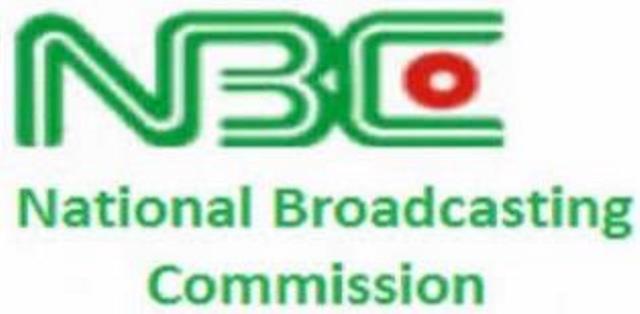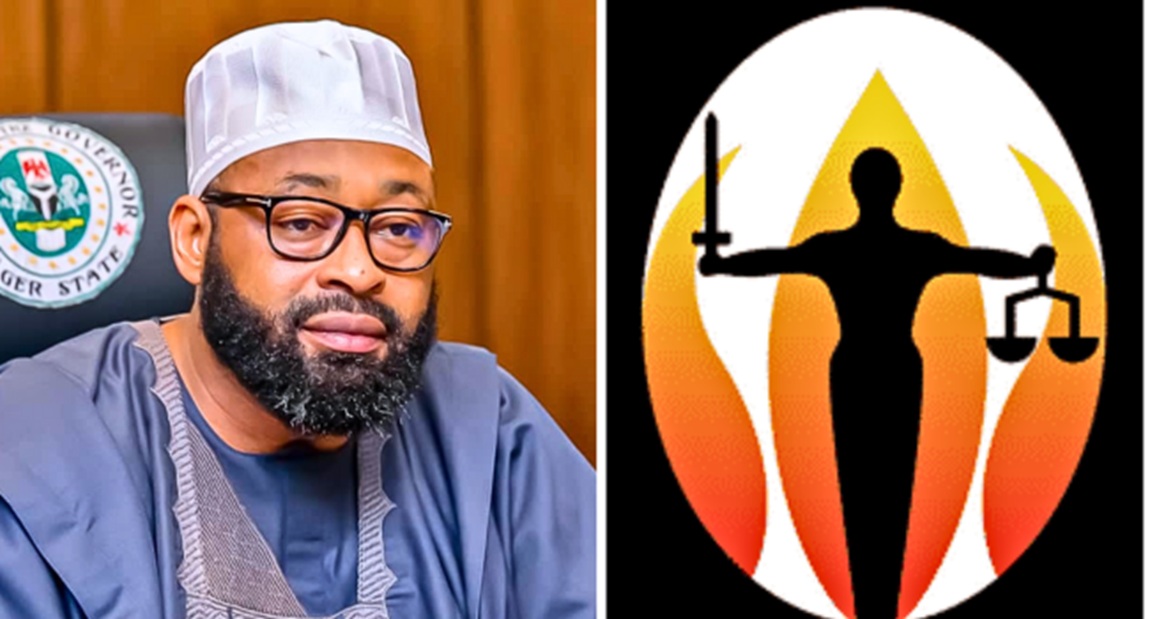Broadcasting
Young African Team Wins PMI’s First-Ever Make Reality Challenge

Four Rwandan students enrolled at the African Leadership University beat tough competition from 10,000 other Rising Leaders to emerge winners at the first ever global Make Reality Challenge hosted by the non-profit professional association, Project Management Institute (PMI). The contestants had to bring creative and strategic solutions to life using no-code/low-code tools while making a social impact.

Citizen development is on pace to be the most disruptive agent of change in a generation. Gartner predicts that by 2023, citizen developers will be four times as prevalent as professional developers. By using no-code/low-code platforms in the Make Reality Challenge, Rising Leaders developed solutions to help address some of the world’s most pressing issues more quickly and efficiently.
The competition was open to college and university students between 18-24. Nearly 5,900 Make Reality Challenge teams across 65 countries were tasked with identifying a problem and developing a solution related to one of the 17 United Nations (UN) Sustainable Development Goals (SDGs), in support of this year’s theme “Disruption for Social Impact.”
The United Nations adopted the SDGs in 2015 as a universal call to action to end poverty, protect the planet, and ensure that by 2030 all people enjoy peace and prosperity.
Competing as Tech Era, Ms Tuyishime Josiane, Ms Nar Lo Dia, Ms Mukantwari Francoise and Mr Chukwuma Paul, ideated and developed UbuzimaPrivacy, an innovative platform that will help hospitals record patient data online (including testing, results, prescriptions, and illness trajectory).
Studies show that electronic medical records significantly reduce medication errors that can lead to death or pose a serious health risk to patients. In Rwanda, just one such platform called IvuliroTech, created by Karisimbi Technical Solutions, helps hospitals record patient data online and serves only 12 hospitals.
As required by the competition rules, the solution addressed SDG3, Good Health & Well Being.
Speaking of the win, Chukwuma Paul of Team Tech Era said, “”Though one may be overpowered, two can defend themselves. A three-strand rope is not quickly broken. A four-legged hyperstatic system table is stronger than an isostatic system.”
Tech Era won $10,000 and an opportunity to participate in an interactive Q&A session at the PMI’s Virtual Experience Series 2022: PMXPO, on March 24, 2022. PMXPO is a free, interactive event for the project management profession to learn from key players in the industry, network, earn PDUs and gain valuable knowledge.
“At PMI, we believe in the power of Rising Leaders,” said Ashwini Bakshi, Managing Director Europe & Sub-Saharan Africa, Project Management Institute.
“By empowering and enabling them to drive social change through initiatives like the Make Reality Challenge, we’re providing the young innovative thinkers an opportunity to build useful solutions to help solve some of the world’s biggest challenges. It’s exciting to see four young students from Africa win and it speaks to the potential of other Rising Leaders in the region. UbuzimaPrivacy will not only benefit Rwanda but Africa as a whole.”
The second place was clinched by Team EmEducation from the Emlyon Business School in France, while the third place went to Sport Sharks from the University of Mumbai and the Institute of Chemical Technology in India. A number of regional prizes were also awarded to teams from around the world.
The top three global winners took home a collective $22,000 in cash prizes. The total prize money was nearly USD40,000.
Advancing teams used no-code/low-code tools and citizen developer technology to make their solution a reality. Throughout the three phases of the competition, teams were judged on various components including user functionality, presentation, impact and scalability, ideation, and Q&A. Judging was conducted by senior staff at PMI, PMI Board past-chair Tony Appleby, PMIEF Board past-chair Ram Dokka, members of the Academic Insight Team and PMI® NextGen Insight Team. Collectively, winning teams were rewarded with nearly $40,000 in cash prizes and PMI networking opportunities.
Broadcasting
Idris, Information Minister Says Only NBC can Suspend Broadcast Licences

Mohammed Idris, minister of information, has reacted to the closure of Badeggi FM radio station in Niger state.

Mohammed Idris, minister of information,
On Friday, Umar Bago, governor of Niger state, ordered the commissioner of police to seal off Badeggi FM radio station over alleged incitement of violence.
A statement by Bologi Ibrahim, chief press secretary to the Niger governor, said the “daily activities of the radio station have been unethical”.
“Governor Bago also accused the owner of the station of incitement of the people against the government and directed that the license of the radio station be revoked,” the statement reads in part.
Reacting in a statement at the weekend, Rabiu Ibrahim, special assistant (media) to Idris, said the ministry has noted concerns raised by stakeholders in the media industry over the governor’s directive.
Idris said the National Broadcasting Commission (NBC) has the legal authority to suspend or revoke broadcast licences.
“While acknowledging the concerns raised, the Ministry notes that the suspension of broadcasting licenses falls within the purview of the National Broadcasting Commission (NBC), as stipulated by law,” he said.
“In light of this, the Ministry welcomes the decision of the Niger State Government to formally report the perceived “unethical behavior” of Badegi FM to the NBC for resolution.
“The Minister appeals to all parties to remain calm, assuring that the NBC has the necessary mechanisms to resolve the issue in a fair and impartial manner.”
According to the information posted on its website, Badeggi Radio 90.1 FM, Minna, is a private radio station established in 2020 by Shuaibu Badeggi.
Broadcasting
Government of Ghana Slams MultiChoice, Insists on DStv Price Cut

Samuel Nartey George, minister for Communications, Digital Technology and Innovation, Government of Ghana, has accused MultiChoice Ghana of showing disregard for Ghanaians by refusing to reduce its DStv subscription fees despite favourable economic indicators.

In a social media post on Sunday, August 3, the minister said the company’s latest statement vindicates his long-held view that it does not take Ghanaians seriously.
“I have read the release by DStv Ghana and taken full consideration that they vindicate my earlier position that they simply do not take the Ghanaian people serious enough,” he wrote.
The minister had earlier given MultiChoice Ghana a seven-day ultimatum, ending August 7, to review its bouquet prices downward or face the suspension of its operating licence by the National Communications Authority (NCA).
He cited the cedi’s appreciation, dropping inflation, and reduced fuel prices as justification for the directive.
But MultiChoice, in a statement dated August 3 and signed by its Alex Okyere, managing director, said while it acknowledges the recent economic gains, it finds the demand to reduce prices untenable.
“While we appreciate the recent appreciation of the Cedi (which we have never referred to as a ‘fluke’), it is not tenable to reduce the DStv subscription fees in the manner proposed by the Minister,” the statement said.
The company said it had engaged the Ministry and the NCA in good faith and remained committed to resolving the matter through constructive dialogue for the interest of its stakeholders and staff.
Sam George, however, dismissed these claims, noting that the company responded differently when it was faced with similar pressure in Nigeria.
“The same group operating in Nigeria reversed price increases when the Nigerian authorities sued them. The Nigerian House of Representatives took the matter up and ordered a suspension of the increases. They complied,” he said.
He also revealed details of an alternative proposal by the company, which he rejected.
According to him, MultiChoice had suggested maintaining the current prices while halting the transfer of revenue to their headquarters.
“In all honesty, that offer lacks any logic in my estimation. The essence of my action is to see Ghanaians pay a fair price for the services offered. How does this proposal solve the real issue?” he asked.
I have read the release by DStv Ghana and taken full consideration that they vindicate my earlier position that they simply do not take the Ghanaian people serious enough.
The same Group operating in Nigeria reversed price increases in Nigeria when the Nigerian authorities sued them.
The Nigerian House of Representatives took the matter up and ordered a suspension of the increases. They complied.
This year, in April, at a time the Ghanaian cedi had seen a ~10% appreciation against all major currencies, inflation had dropped by over 5% and fuel prices had also dropped, DStv announced and implemented a 15% increase.
I believe in the interest of transparency, I make public the alternate proposal that DStv offered to me that I flatly rejected.
They proposed that I allow them maintain the collection of the exorbitant bouquet prices as they stand but order them not to send the revenue to their headquarters.
In all honesty, that offer lacks any logic in my estimation. The essence of my action is to see Ghanaians pay a fair price for the services offered. How does this proposal solve the real issue?
For far too long, corporations have fleeced the Ghanaian people.
There has been a RESET and it demands a new style of public service that is fiercely protective of the Ghanaian people.
I remain empathetic to the Ghanaian staff of DStv but I believe that they should stand with the rest of us as we demand what is right for us.
I remain open to “constructive engagements” that are centred on PRICE REDUCTION. Anything else is tangential and of no consequence.
Broadcasting
SERAP Issues 48-Hour Ultimatum to Niger Governor Over Badeggi FM Closure

Socio-Economic Rights and Accountability Project (SERAP) has given Governor Umar Bago of Niger State a 48-hour ultimatum to reverse the decision to shut down Badeggi FM 90.1, a privately owned radio station located in Minna, the state capital.

Governor Umar Bago
SERAP made the demand in a letter dated August 2, signed by its Deputy Director, Mr. Kolawole Oluwadare. The organisation described the governor’s directive as arbitrary and unlawful, urging immediate reinstatement of the station’s licence and withdrawal of the alleged threat to demolish the premises.
The group also called for the protection of the station’s owner, Mr. Shuaibu Badeggi, and staff members, citing rising concerns over media repression. It warned that the government’s actions risk violating Nigeria’s constitutional provisions and international obligations on press freedom and human rights.
Gov. Bago had, on August 1, ordered the immediate closure of Badeggi FM, citing unethical journalism, incitement, and opposition to his administration’s New Niger Development Agenda.
He directed the state’s Commissioner of Homeland Security to profile the owner and also threatened demolition of the station’s facility.
Reacting to the development, the Nigerian Bar Association (NBA) described the action as executive rascality, stating that only the National Broadcasting Commission (NBC) has the authority to revoke a broadcast licence.
NBA President, Mr. Afam Osigwe, urged security agencies to disregard unlawful orders that undermine constitutional rights.
SERAP warned that failure to comply within the specified timeframe would prompt legal action to uphold the public’s right to access information and protect media freedom in the state.

 Telecom3 days ago
Telecom3 days agoHistory as MTN Nigeria Becomes First to Hit ₦10 Trillion Market Cap @ NGX

 Telecom3 days ago
Telecom3 days agoMTN Nigeria’s CAPEX Soars Nearly 300 Percent to ₦565.7Bn in Q1 2025

 Telecom3 days ago
Telecom3 days agoMTN Nigeria Celebrates Super Falcons with ₦150 Million Reward After WAFCON Triumph

 General News3 days ago
General News3 days agoNigeria Sends Egusi, Others to Space @ NASA’s Crew-11 Mission Launch

 Telecom3 days ago
Telecom3 days agoVitel Wireless Rolls Out 50,000 SIM Cards, eSIMs

 General News3 days ago
General News3 days agoAfDB Approves $46m to Transform Healthcare in Sokoto State

 General News3 days ago
General News3 days agoNITDA DG says Nigeria’s Digital Economy Will Empower Citizens, Bridge Divides, and Drive Unity

 News3 days ago
News3 days agoExperts Caution e-commerce Operators on Eco-friendly Materials
























